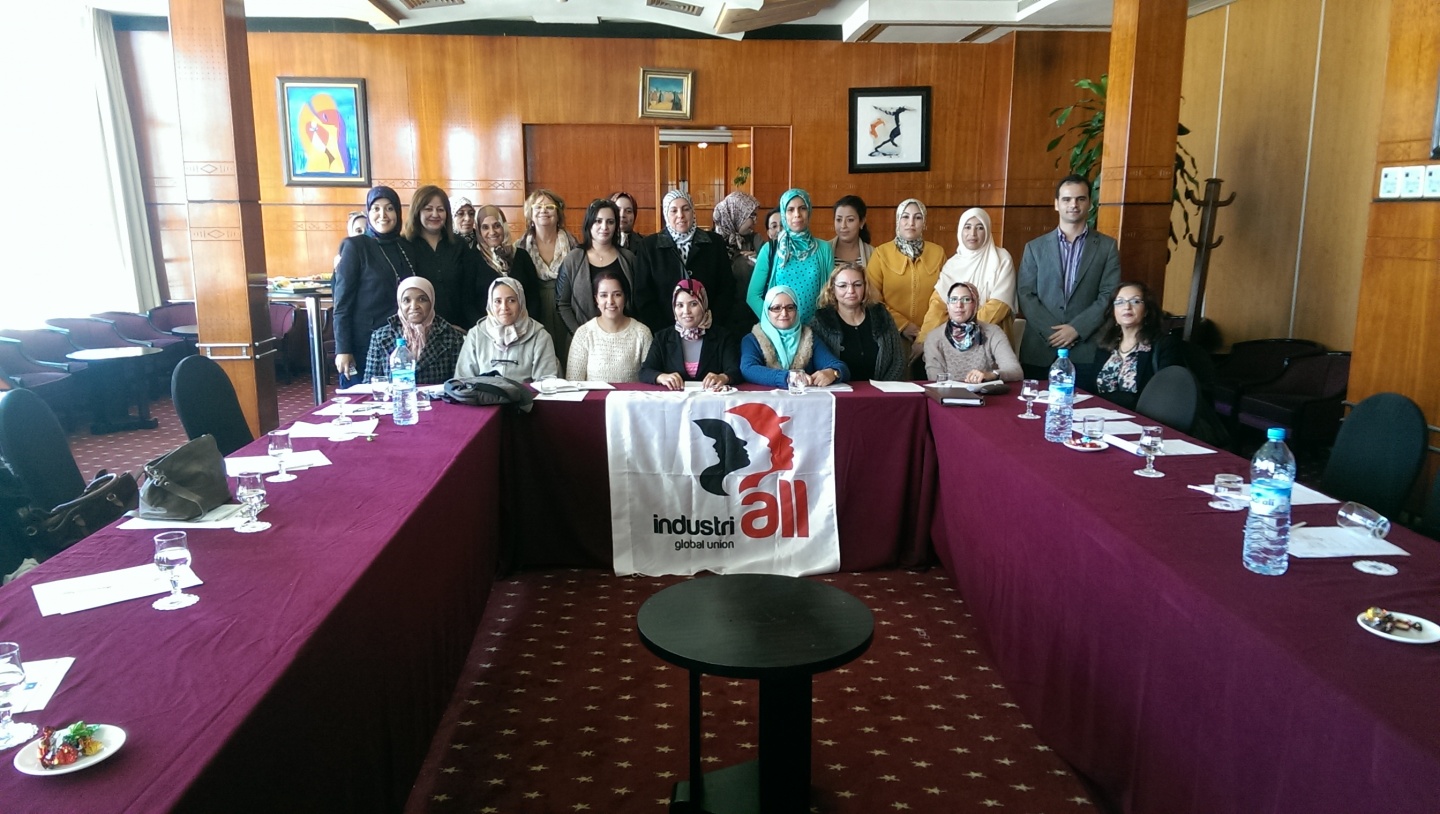11 November, 2014Twenty-four women from the phosphate, energy, oil and gas, textiles and pharmaceuticals sectors gathered on 9 and 10 November 2014 in Casablanca in a meeting organized by IndustriALL Global Union’s Moroccan Women’s Network.
Participants learned about the large and growing number of women who work in their surroundings in the informal economy. They listened to two presentations, one of them on the many good experiences of forging links between formal unions and workers in the informal economy. This is vital for trade unions because according to the ILO, if trade unions only represent the organized sector, it will count for only seven per cent of workers. That means that most working women are outside trade unions' jurisdiction. Developing a work program to cover the informal economy would make women's role in trade unions more effective.
Women in IndustriALL affiliates in the UMT and CDT unions formed a network earlier this year. Since then they have met once a month and were particularly active when it came to preparing the general strike on 29 October. The general strike was called in an attempt to get the government back to social dialogue. The women also joined a demonstration to combat violence against women on 30 October in front of the Ministry.
At the meeting, the women worked out plans to gather data on informal workers and their sectors, with particular emphasis on homeworkers in the textile production chain. They would like to see the brands pressured in doing more to improve women's rights.
Cooperatives are another key area for them to explore. They also suggested creating sections in trade unions to look after informal workers. One idea is to set up a hotline so that workers can be connected immediately to someone who listens to their concerns. They wanted to start by creating awareness among the women homeworkers about the hazards involved in their work and also about their rights. Their idea is to create cells of 10 to 20 women in these informal areas.
The women already have good experience in working with women's associations, for example in getting ILO Convention 183 on maternity protection ratified. They are counting on this experience to help them make progress in the informal economy.
The women realized that organizing their comrades in the informal economy will make trade unions stronger and boost their bargaining power.




